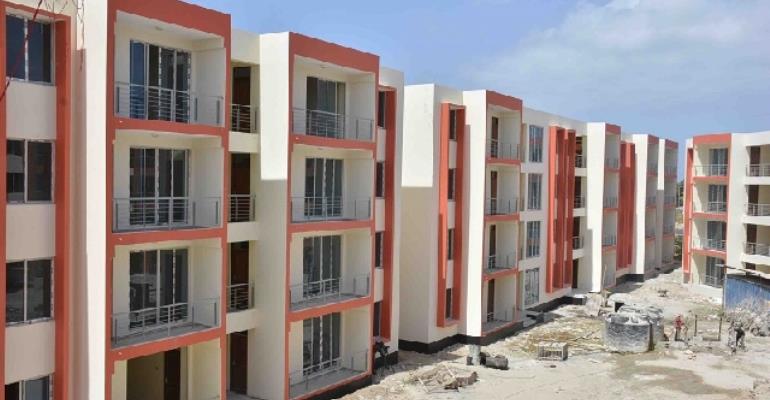The governing New Patriotic Party (NPP) has promised to construct low- and middle-income estate houses for Ghanaians to reduce the housing deficit in the country if its flagbearer, Nana Addo Dankwa Akufo-Addo, is reelected President in the December 7 elections.
The party, in its 2020 manifesto launched over the weekend in Cape Coast, said: “Our housing deficit is particularly acute for low income households. We will address this segment of the market by building low-income housing estates over the next four years, using local materials by working with the Building and Roads Research Institute and private developers.”
According to the NPP manifesto, land banks have been secured for this purpose, and the houses will be available for rent, rent-to-own, or outright purchase.
Touching on middle-income housing, the NPP said under an accelerated National Housing Programme, the number of housing units, currently being delivered annually nationwide by both the private and public sectors, will be increased threefold.
The NPP government has promised to set-up two anchor institutions – a Ghana Housing Authority (GHA), and a National Housing and Mortgage Finance Company (NHMF), working together but with different roles to drive the housing delivery process if given another term.
The GHA, according to the party will improve the legal and regulatory framework, create land banks, provide infrastructure, and standardise houses while the NHMF will establish financial arrangements for the demand and supply side of the housing markets by managing the Mortgage and Housing Fund set up in the 2019 Budget, provide incentives to enable the private sector to build communities/housing units, and create jobs in the process across all Municipal Metropolitan and District Assembly’s in the country.
The NPP further stated that houses will be available to Government employees or other formal sector workers as well as the informal sector.
The governing party has also promised to do the following:
• Expand the capacity of State Housing Company Limited (SHC) to lead government’s efforts, along with the private sector, to build a large pool of affordable homes for Ghanaian workers and families
• Create Land Banks and provide Infrastructure in partnership with Landowners and District Assemblies. The serviced plots will be managed by Ghana Housing Authority to reduce the problems faced by individuals and real estate developers during the land acquisition process
• Promote and sponsor Real Estate Investment Trusts (REITs) as a vehicle to encourage rent-to-own schemes, private sector mortgage finance companies and mortgage-backed securities
• Review the Home Mortgage Finance Act, 2008 (Act 770) to ensure that foreclosure processes are simplified
• Implement more rigorously the tax-deductible mortgage interest regime
• Amend the law to allow for Pension Funds to invest more than 5% of their portfolio in real estate assets, including pension backed mortgages
• Provide targeted, project-based tax incentives (instead of blanket incentives) for private developers to build more social housing, as well as inner-city redevelopment and revitalisation schemes, and
• Promote setting up of an integrated local manufacturing industry to support the housing sector through tax incentives, creation of markets as well as tax rebates on some imported materials among others.
Source: Ghanaweb



